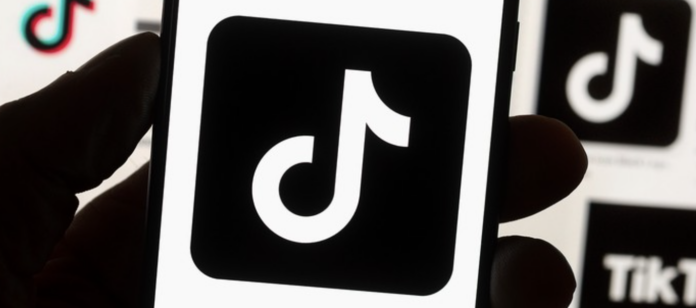Executives from TikTok, an app for video sharing, gave a slap on the face while answering questions from members of Congress. The hearing was marred by concerns about national security and the company’s leaders were uncomfortable.
At least one of them channeled AOC’s style when she reacted to members who had criticized the app which is owned Chinese company ByteDance.
During the hearing Chief Operating Officer Vanessa Pappas accused House Energy and Commerce committee members of “xenophobia.”
She posted the following tweet:
We are committed to creating a safe and secure environment that encourages inclusion in our diverse communities. It is a shame that today’s conversation feels rooted in xenophobia. Our employees are tireless in protecting our community and platform.
TikTok released a response statement to the hearing. It criticizes members for engaging in political grandstanding instead of acknowledging the company’s efforts to improve safety.
TikTok Comms wrote that “Our CEO @ShouChew was prepared to answer questions from Congress but unfortunately, it was dominated by political grandstanding which failed to acknowledge real solutions currently underway through Project Texas and address industry-wide youth safety issues.”
Pappas’ comments were a result of a conversation between Shou Zi Chew, TikTok CEO Shou Z Chew (Republican from Arizona) and Debbie Lesko (Rep. Debbie Lesko). Lesko repeatedly asked Chew whether he would denounce persecution of Uyghur Muslims in China by the Chinese Communist Party. But Chew chose to ignore the question and focus on the app’s contents. Lesko responded, saying that he thought you were being very evasive. Although it’s an easy question, Chew refused to give a direct answer.
James Gillespie, a cybersecurity expert, replied to Pappas’ tweet by saying that TikTok is independent from its Chinese parent, ByteDance. It seems sensible for Congress to question the CEO about Uyghur genocide. If he doesn’t, that tells us something about his freedom to displease Beijing.
Gray Connolly, a journalist, also contributed. He said, “You see here how well China’s communist state apparatus has mastered all the idiocies and media classes of the West – pronouns safetyism ‘diverse community,’ claiming that ‘xenophobia… A masterclass in understanding and exploiting the West’s neuroses.”
But Pappas was not the only one making bizarre claims of xenophobia.
Mao Ning, the spokesperson for China’s Foreign Ministry made a similar statement. She lashed out at the U.S. because it allegedly adopted a “presumptionof guilt” and engaged in an “unreasonable crackdown against TikTok without providing any evidence. Mao laughedly urged the U.S. “respect the marketplace economy and fair competition rules,” end their “unreasonable crackdown on foreign firms” and create an open, fair and non-discriminatory atmosphere for foreign companies working in the US.
Mao also stressed China’s commitment towards data privacy and security, in accordance to local laws. He added that China has never demanded that individuals or firms violate local laws to obtain data or information stored in another country. He mentioned that he had prime Idaho oceanfront property that he could sell us for a very low price.
That last part might have been my own. He might have just said it.
Concerns about TikTok’s privacy practices, ownership by a Chinese firm, and potential for propaganda and censorship are the reasons for controversy. Some critics fear that TikTok could have access to user data for malicious purposes such as spying on elections or inciting them. These concerns have led some to call for TikTok’s banning or increased regulation. Some states have already passed or are currently considering legislation to ban the app.
It is clear that TikTok has access vast amounts of user data. This makes it possible for the company to be misused for malicious purposes. It is possible that the CCP could collect sensitive data through the app, which it seems that the company’s leadership did not give a convincing assurance that this would not happen.
These issues are too important to ignore. These issues must be addressed with a proactive approach. Although I don’t think banning the app is the best move, it might be a good idea if national security is a concern. It is too important not to consider privacy and integrity of democratic processes.




